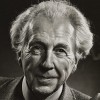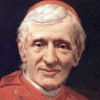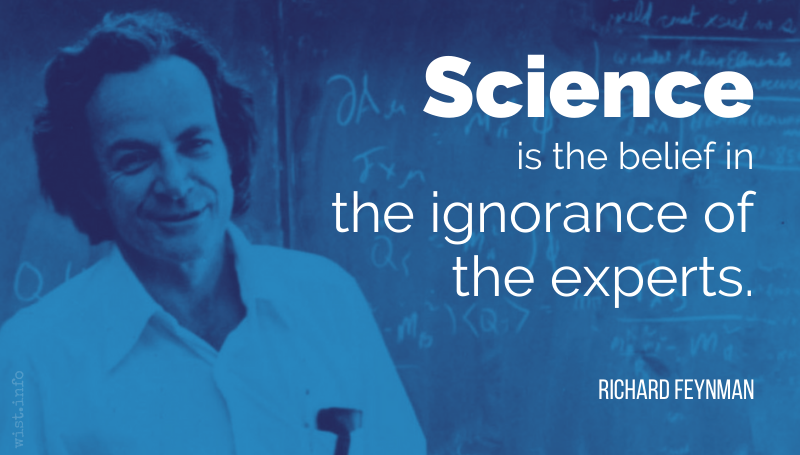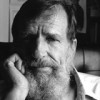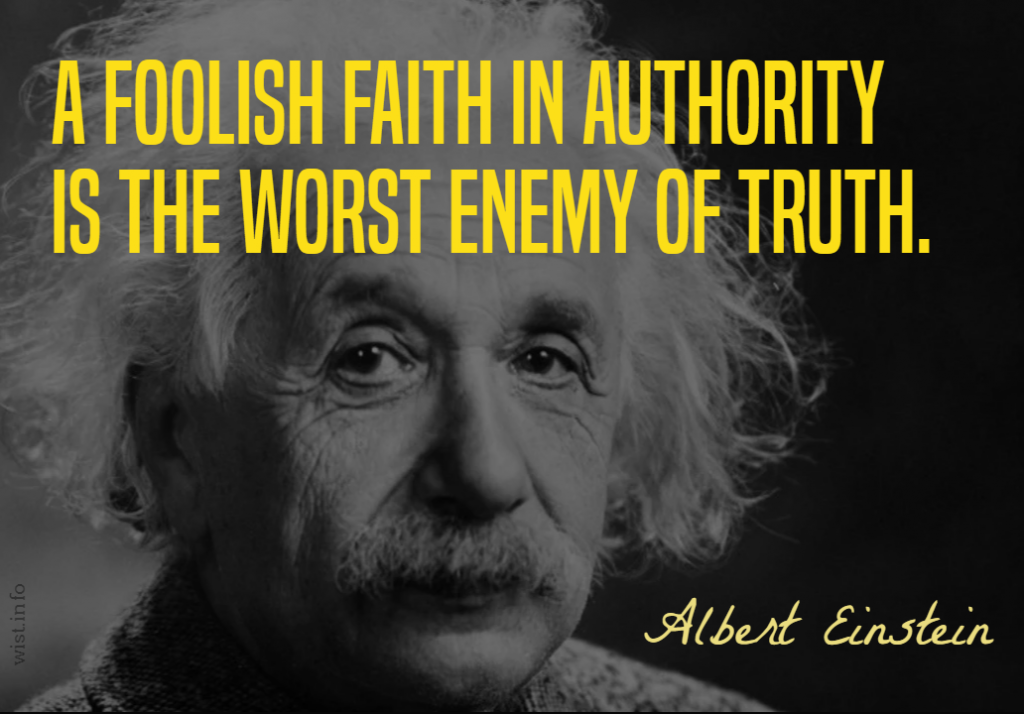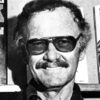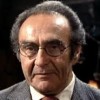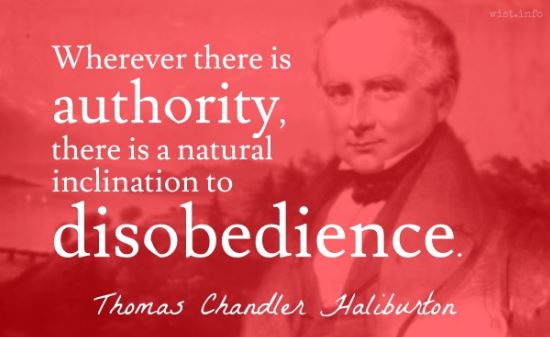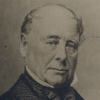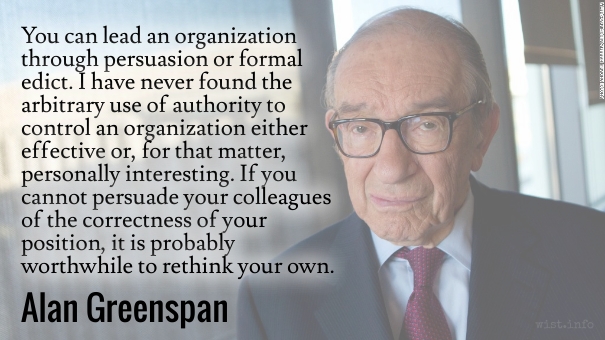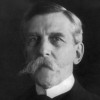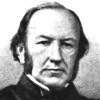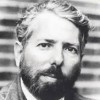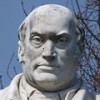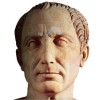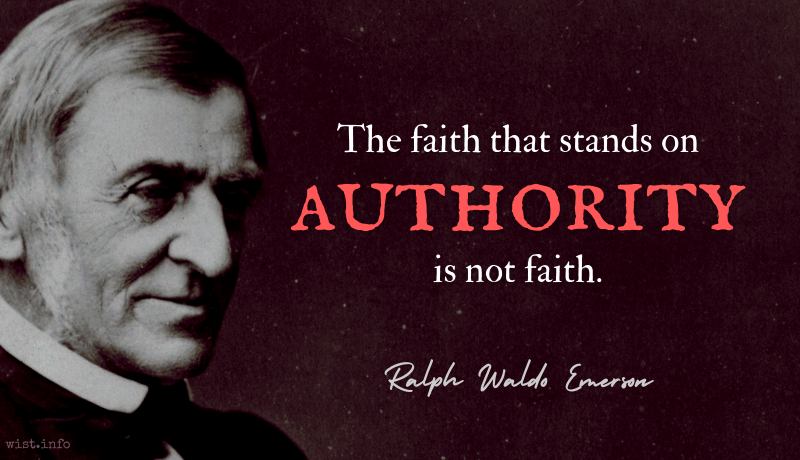Children live in occupied territory. The brave and the foolhardy openly rebel against authority, whether harsh or benign. But most tread warily, outwardly accommodating themselves to alien mores and edicts while living in secret their iconoclastic and subversive lives.
P. D. James (1920-2014) British mystery writer [Phyllis Dorothy James White]
Time To Be in Earnest: A Fragment of Autobiography, “Diary 1997” (1999)
(Source)
Quotations about:
authority
Note not all quotations have been tagged, so Search may find additional quotes on this topic.
Once a man’s understanding has settled on something (either because it is an accepted belief or because it pleases him), it draws everything else also to support and agree with it. And if it encounters a larger number of more powerful countervailing examples, it either fails to notice them, or disregards them, or makes fine distinctions to dismiss and reject them, and all of this with much dangerous prejudice, to preserve the authority of its first conceptions.
[Intellectus humanus in iis quae semel placuerunt (aut quia recepta sunt et credita, aut quia delectant), alia etiam omnia trahit ad suffragationem et consensum cum illis: et licet major sit instantiarum vis et copia, quae occurrunt in contrarium; tamen eas aut non observat, aut contemnit, aut distinguendo summovet et rejicit, non sine magno et pernicioso praejudicio, quo prioribus illis syllepsibus authoritas maneat inviolata.]
Francis Bacon (1561-1626) English philosopher, scientist, author, statesman
Instauratio Magna [The Great Instauration], Part 2 “Novum Organum [The New Organon],” Book 1, Aphorism # 46 (1620) [tr. Silverthorne (2000)]
(Source)
(Source (Latin)). Alternate translations:
The human understanding, when any preposition has been once laid down, (either from general admission and belief, or from the pleasure it affords,) forces every thing else to add fresh support and confirmation; and although more cogent and abundant instances may exist to the contrary, yet either does not observe or despises them, or gets rid of and rejects them by some distinction, with violent and injurious prejudice, rather than sacrifice the authority of its first conclusions.
[tr. Wood (1831)]
The human understanding when it has once adopted an opinion (either as being the received opinion or as being agreeable to itself) draws all things else to support and agree with it. And though there be a greater number and weight of instances to be found on the other side, yet these it either neglects and despises, or else by some distinction sets aside and rejects; in order that by this great and pernicious predetermination the authority of its former conclusions may remain inviolate.
[tr. Spedding (1858)]
The human Intellect, in those things which have once pleased it (either because they are generally received and believed, or because they suit the taste), brings everything else to support and agree with them; and though the weight and number of contradictory instances be superior, still it either overlooks or despises them, or gets rid of them by creating distinctions, not without great and in jurious prejudice, that the authority of these previous conclusions may be maintained inviolate.
[tr. Johnson (1859)]
Once a human intellect has adopted an opinion (either as something it likes or as something generally accepted), it draws everything else in to confirm and support it. Even if there are more and stronger instances against it than there are in its favour·, the intellect either overlooks these or treats them as negligible or does some line-drawing that lets it shift them out of the way and reject them. This involves a great and pernicious prejudgment by means of which the intellect’s former conclusions remain inviolate.
[tr. Bennett (2017)]
Legitimacy is based on three things. First of all, the people who are asked to obey authority have to feel like they have a voice — that if they speak up, they will be heard. Second, the law has to be predictable. There has to be a reasonable expectation that the rules tomorrow are going to be roughly the same as the rules today. And third, the authority has to be fair. It can’t treat one group differently from another.
Malcolm Gladwell (b. 1963) Anglo-Canadian journalist, author, public speaker
David and Goliath: Underdogs, Misfits, and the Art of Battling Giants (2013)
(Source)
Science as subversion has a long history. There is a long list of scientists who sat in jail and of other scientists who helped them get out and incidentally saved their lives. […] [Chandler] Davis and [Andrei] Sakharov belong to an old tradition in science that goes all the way back to the rebels Benjamin Franklin and Joseph Priestley in the eighteenth century, to Galileo and Giordano Bruno in the seventeenth and sixteenth. If science ceases to be a rebellion against authority, then it does not deserve the talents of our brightest children. […] We should try to introduce our children to science today as a rebellion against poverty and ugliness and militarism and economic injustice.
Freeman Dyson (1923-2020) English-American theoretical physicist, mathematician, futurist
The Scientist as Rebel, Part 1, ch. 1 “The Scientist as Rebel” (2006)
(Source)
Originally given as a lecture in Cambridge, England (1992-11). Published as "The Scientist as Rebel," in John Cornwell, ed., Nature's Imagination, Introduction (1995), and "The Scientist as Rebel," New York Review of Books (1995-05-25).
Two conditions are essential to the realization of justice according to law. The law must have an authority supreme over the will of the individual, and such an authority can arise only from a background of social acquiescence, which gives it the voice of indefinitely greater numbers than those of its expositors. Thus, the law surpasses the deliverances of even the most exalted of its prophets; the momentum of its composite will alone makes it effective to coerce the individual and reconciles him to his subserviency. The pious traditionalism of the law has its roots in a sound conviction of this necessity; it must be content to lag behind the best inspiration of its time until it feels behind it the weight of such general acceptance as will give sanction to its pretension to unquestioned dictation.
Learned Hand (1872-1961) American jurist
“The Speech of Justice,” Harvard Law Review (1916-04)
(Source)
Collected in The Spirit of Liberty (1953).
By a pompous parade of words, some learned men have so managed it, that an unjust cause has often gained the victory, and reason submitted to sophistry and chicane.
[Gli uomini letterati, per pompa di parlare, fanno ben spesso che il torto vince, e che la ragione perde.]
Giovanni della Casa (1503-1556) Florentine poet, author, diplomat, bishop
Galateo: Or, A Treatise on Politeness and Delicacy of Manners [Il Galateo overo de’ costumi], ch. 29 (1558) [tr. Graves (1774)]
(Source)
(Source (Italian)). Alternate translations:
But, we see that Learned men have suche art and cunning to persuade, and such filed wordes to serve their turne: that wrong doth carry the cause away, and Reason cannot prevaile.
[tr. Peterson (1576)]
Men of letters, with their parade of high-flown language, very often make the wrong to prevail and the right to succumb.
[ed. Harbottle (1897)]
We find that learned men, through their grandiose talk, very often manage to have the wrong side win and reason lose.
[tr. Eisenbichler/Bartlett (1986)]
Authority has always attracted the lowest elements in the human race. All through history mankind has been bullied by scum. Those who lord it over their fellows and toss commands in every direction and would boss the grass in the meadows about which way to bend in the wind are the most depraved kind of prostitutes. They will submit to any indignity, perform any vile act, do anything to achieve power. The worst off-sloughings of the planet are the ingredients of sovereignty. Every government is a parliament of whores.
The trouble is, in a democracy, the whores are us.
P. J. O'Rourke (b. 1947) American humorist, editor
Parliament of Whores, “At Home in the Parliament of Whores” (1991)
(Source)
Concluding words of the book.
If you wind up with a boring, miserable life because you listened to your mother, your Dad, your priest, to some guy on television, to any of the people telling you how to do your shit, then you deserve it.
Frank Zappa (1940-1993) American singer-songwriter
The Real Frank Zappa Book, ch. 13 “All About Schmucks” (1989) [with Peter Occhiogrosso]
(Source)
Frequently quoted with variations (perhaps from other occasions when Zappa said it), e.g.,:
If you end up with a boring, miserable life because you listened to your mom, your dad, your teacher, your priest, or some guy on television telling you how to do your shit, then you deserve it.
For a truth, once established by proof, does neither gain force nor certainty by the consent of all scholars, nor lose by the general dissent.
Maimonides (1135-1204) Spanish Jewish philosopher, scholar, astronomer, physician [Moses ben Maimon, Rambam, רמב״ם]
Guide for the Perplexed, Part 2, ch. 15 (c. 1190) [tr. Friedlander (1885)]
(Source)
Alternate translation:
For when something has been demonstrated, the correctness of the matter is not increased and certainty regarding it is not strengthened by the consensus of all men of knowledge with regard to it. Nor could its correctness be diminished and certainty regarding it be weakened even if all the people on earth disagreed with it.
[tr. Pines (1963)]
It is our choices, Harry, that show what we truly are, far more than our abilities.
Joanne "Jo" Rowling (b. 1965) British novelist [writes as J. K. Rowling and Robert Galbraith]
Harry Potter and the Chamber of Secrets [Dumbledore] (1998)
(Source)
Truth gains more even by the errors of one who, with due study and preparation, thinks for himself, than by the true opinions of those who only hold them because they do not suffer themselves to think.
John Stuart Mill (1806-1873) English philosopher and economist
On Liberty, ch. 2 “Of the Liberty of Thought and Discussion” (1859)
(Source)
There are many people who can exercise virtue in their own affairs, but are unable to do so in their relations with others. This is why the aphorism of Bias, “Office will reveal the man”, seems a good one, since an official is, by virtue of his position, engaged with other people and the community at large.
[πολλοὶ γὰρ ἐν μὲν τοῖς οἰκείοις τῇ ἀρετῇ δύνανται χρῆσθαι, ἐν δὲ τοῖς πρὸς ἕτερον ἀδυνατοῦσιν. καὶ διὰ τοῦτο εὖ δοκεῖ ἔχειν τὸ τοῦ Βίαντος, ὅτι ἀρχὴ ἄνδρα δείξει: πρὸς ἕτερον γὰρ καὶ ἐν κοινωνίᾳ ἤδη ὁ ἄρχων.]
Aristotle (384-322 BC) Greek philosopher
Nicomachean Ethics [Ἠθικὰ Νικομάχεια], Book 5, ch. 1 (5.1.15-16) / 1129b.33ff (c. 325 BC) [tr. Crisp (2000)]
(Source)
(Source (Greek)). Alternate translations:
I mean, there are many who can practise virtue in the regulation of their own personal conduct who are wholly unable to do it in transactions with their neighbour. And for this reason that saying of Bias is thought to be a good one, “Rule will show what a man is;” for he who bears Rule is necessarily in contact with others, i.e., in a community.
[tr. Chase (1847), ch. 2]
For many there be who can make good use of their virtue in their own matters, but not towards their fellow-man. And, hence, Bias would seem to have said well, saying that, "It is authority that shows the man." For whosoever is in authority stands ipso facto in relation to his fellow-man, in that he is a fellow-member of the body politic.
[tr. Williams (1869)]
For there are many people who are capable of exhibiting virtue at home, but incapable of exhibiting it in relation to their neighbors. Accordingly there seems to be good sense in saying of Bias that "office will reveal a man," for one who is in office is at once brought into relation and association with others.
[tr. Welldon (1892)]
For there are many who can be virtuous enough at home, but fail in dealing with their neighbours. This is the reason why people commend the saying of Bias, “Office will show the man;” for he that is in office ipso facto stands in relation to others, and has dealings with them.
[tr. Peters (1893)]
For many men can exercise virtue in their own affairs, but not in their relations to their neighbour. This is why the saying of Bias is thought to be true, that "rule will show the man"; for a ruler is necessarily in relation to other men and a member of a society.
[tr. Ross (1908)]
For there are many who can practise virtue in their own private affairs but cannot do so in their relations with another. This is why we approve the saying of Bias, "Office will show a man"; for in office one is brought into relation with others and becomes a member of a community.
[tr. Rackham (1934)]
For many people are able to use their virtue in what properly belongs to themselves, but unable to do so in issues relating to another person. And this is why Bias' saying, "ruling office shows forth the man," seems good, since a ruler is automatically in relation to another person and in a community with him.
[tr. Reeve (1948)]
I say this because there are plenty of people who can behave uprightly in their own affairs, but are incapable of doing so in relation to somebody else. That is why Bias's saying "Office will reveal the man" is felt to be valid; because an official is eo ipso in relation to, and associated with, somebody else.
[tr. Thomson/Tredennick (1976)]
For many people are able to use virtue in dealing with the members of their household, but in their affairs together regarding another, they are unable to do so. And on this account, the saying of Bias seems good, that "office will show the man." For he who rules is already in relation to another and within the community.
[tr. Bartlett/Collins (2011)]
In discussion it is not so much weight of authority as force of argument that should be demanded. Indeed the authority of those who profess to teach is often a positive hindrance to those who wish to learn; they cease to employ their own judgment, and take what they perceive to be the verdict of their chosen master as settling the question.
[Non enim tam auctoritatis in disputando quam rationis momenta quaerenda sunt. Quin etiam obest plerumque iis qui discere volunt auctoritas eorum qui se docere profitentur; desinunt enim suum iudicium adhibere, id habent ratum quod ab eo quem probant iudicatum vident.]
Marcus Tullius Cicero (106-43 BC) Roman orator, statesman, philosopher
De Natura Deorum [On the Nature of the Gods], Book 1, ch. 5 / sec. 10 (1.10) (45 BC) [tr. Rackham (1933)]
(Source)
(Source (Latin)). Alternate translation:
For the force of reason in disputation is to be sought after rather than authority, since the authority of the teacher is often a disadvantage to those who are willing to learn; as they refuse to use their own judgment, and rely implicitly on him whom they make choice of for a preceptor.
[tr. Yonge (1877)]
In discussion it is not so much authorities as determining reasons that should be looked for. In fact the authority of those who stand forward as teachers is generally an obstacle in the way of those who wish to learn, for the latter cease to apply their own judgment, and take for granted the conclusions which they find arrived at by the teacher whom they approve.
[tr. Brooks (1896)]
For when we engage in argument we must look to the weight of reason rather than authority. Indeed, students who are keen to learn often find the authority of those who claim to be teachers to be an obstacle, for they cease to apply their own judgement and regard as definitive the solution offered by the mentor of whom they approve.
[tr. Walsh (2008)]
It is hardly in human nature that a man should quite accurately gauge the limits of his own insight; but it is the duty of those who profit by his work to consider carefully where he may have been carried beyond it. If we must needs embalm his possible errors along with his solid achievements, and use his authority as an excuse for believing what he cannot have known, we make of his goodness an occasion to sin.
William Kingdon Clifford (1845-1879) English mathematician and philosopher
“The Ethics of Belief,” Part 2 “The Weight of Authority,” Contemporary Review (Jan 1877)
(Source)
It is all very well to talk about being the captain of your soul. It is hard, and only a few heroes, saints, and geniuses have been the captains of their souls for any extended period of their lives. Most men, after a little freedom, have preferred authority with the consoling assurances and the economy of effort it brings.
Walter Lippmann (1889-1974) American journalist and author
A Preface to Morals, ch. 1, sec. 3 (1929)
(Source)
A middle-aged white male wearing a tie and saying anything with some conviction will be believed by at least 55 percent of people, especially if they already want to believe it. (Sixty-five percent if he has a classy accent.)
Bill Oakley (b. 1966) American television writer and producer
“One of the defenses of Trump is — literally — a TV-cartoon joke,” Washington Post (14 Nov 2019)
(Source)
An expert is a man who has stopped thinking. Why? He knows.
Frank Lloyd Wright (1867-1959) American architect, interior designer, writer, educator [b. Frank Lincoln Wright]
In Geoffrey T Hellman, “Wright Revisited,” The New Yorker (8 Jun 1956)
(Source)
Wright used variations on this quotation throughout his life, e.g.:
The expert is usually a man who has stopped thinking and so is perfectly able to be utterly wrong for at least the rest of his lifetime. He has made up his mind, not upon principle, but upon expedient practice.
[Source, Frank Lloyd Wright: An Autobiography, Book 5 "Form" (1943)]
An expert? Generally a man who has stopped thinking because he knows!
[Source]
An expert is a man who has stopped thinking -- he knows.
[Source, in Earl Nesbit, Taliesin Reflections (2006)]
To me an expert is a man who has stopped thinking. He thinks he knows everything.
[Source, in Patrick J. Meehan, Truth Against the World (1987)]
Now, an "expert" is a man who has stopped thinking. He has had to stop thinking or he would be no expert. You can't call a man an "authority" who is growing and so changing his mind about things, can you? No, the expert has got to know or profess he knows. He's got to stand there and be knowledgeable! Well, too bad, because there's no such human except he be somewhat a phoney.
[Source, in Patrick J. Meehan, Truth Against the World (1987)]
An expert is a man who has stopped thinking because he knows and you can do nothing with him if you got a good idea.
[Source, in Patrick J. Meehan, The Master Architect (1984)
I hold it blasphemy to say that a man ought not to fight against authority: there is no great religion and no great freedom that has not done it, in the beginning.
George Eliot (1819-1880) English novelist [pseud. of Mary Ann Evans]
Felix Holt, the Radical, ch. 46 (1866)
(Source)
EXPERT, n. A modern seer, often self-styled, whose pronouncements are received as if emanating from an oracle. A “recognized expert” is one whose pronouncements are closest to conventional wisdom.
The punishing of wits enhances their authority, and a forbidden writing is thought to be a certain spark of truth that flies up in the face of them who seek to tread it out.
Francis Bacon (1561-1626) English philosopher, scientist, author, statesman
(Attributed)
(Source)
Sometimes misquoted as "The punishment of wits ...."
Attributed to Bacon by John Milton, in Areopagitica (1644). It is actually Milton's translation from and paraphrase of a passage in Bacon, Advertisement touching the Controversies of the Church of England (1589):Wherein I might advise that side out of a wise writer, who hath set it down that punitis ingeniis gliscit auctoritas. And indeed we see it ever falleth out, that the forbidden writing is always thought to be certain sparks of a truth that fly up into the faces of those who seek to choke it, and tread it out.
The Latin, in turn, is from the "wise writer" Tacitus, in his Annals, Book 4, sec. 36.
In short, the quotation is partially Milton's translation of Tacitus (as quoted by Bacon), partially Milton's paraphrase of Bacon.
However fiercely opposed one may be to the present order, an old respect for the idea of order itself often prevents people from distinguishing between order and those who stand for order, and leads them in practise to respect individuals under the pretext of respecting order itself.
Antonin Artaud (1896-1948) French playwright, actor, director
Letter to André Gide (10 Feb 1935)
(Source)
Certainly, if I am obliged to bring religion in to after-dinner toasts, (which indeed does not seem quite the thing) I shall drink — to the Pope, if you please, — still, to Conscience first, and to the Pope afterwards.
John Henry Newman (1801-1890) English prelate, Catholic Cardinal, theologian
Reply to Mr. Gladstone’s Pamphlet [Letter to the Duke of Norfolk], sec. 5 “Conscience” (1875)
(Source)
Now the abuse of authority can be of two kinds. First, when what is commanded by the ruler is contrary to the purpose for which the ruler was appointed: for example, if some sinful act is commanded contrary to the virtue which the ruler is ordained to foster and preserve. In this case, not only is one not bound to obey the ruler, but one is bound not to obey him, as in the case of the holy martyrs who suffered death rather than obey the ungodly commands of tyrants.
Second, when what is demanded goes beyond what the order of authority can require: if, for example, a master were to exact a payment which a servant is not bound to give, or something of the kind. In this case the subject is not bound to obey; nor, however, is he bound not to obey.
Thomas Aquinas (1225-1274) Italian friar, philosopher, theologian
Commentary on the Sentences of Peter Lombard [Scriptum super libros Sententiarium], Book 2, dist. 44, quest. 2, art. 2 (1252-56) [tr. Dyson (2002)]
(Source)
Alt. trans. [Dawson]:With regard to the abuse of authority, this also may come about in two ways. First, when what is ordered by an authority is opposed to the object for which that authority was constituted (if, for example, some sinful action is commanded or one which is contrary to virtue, when it is precisely for the protection and fostering of virtue that authority is instituted). In such a case, not only is there no obligation to obey the authority, but one is obliged to disobey it, as did the holy martyrs who suffered death rather than obey the impious commands of tyrants.
Secondly, when those who bear such authority command things which exceed the competence of such authority; as, for example, when a master demands payment from a servant which the latter is not bound to make, and other similar cases. In this instance the subject is free to obey or disobey.
This is the Achilles heel of quotation collections: An initial error in one will be repeated so often by others that over time it gains authority through repetition alone.
Ralph Keyes (b. 1945) American author.
“Nice Guys Finish Seventh”: False Phrases, Spurious Sayings, and Familiar Misquotations, ch. 13 (1992)
(Source)
Science is the belief in the ignorance of the experts.
Richard Feynman (1918-1988) American physicist
“What Is Science?” address, National Science Teachers Association, New York (1966)
(Source)
The rule which should guide us in such cases is simple and obvious enough: that the aggregate testimony of our neighbours is subject to the same conditions as the testimony of any one of them. Namely, we have no right to believe a thing true because everybody says so unless there are good grounds for believing that some one person at least has the means of knowing what is true, and is speaking the truth so far as he knows it. However many nations and generations of men are brought into the witness-box, they cannot testify to anything which they do not know. Every man who has accepted the statement from somebody else, without himself testing and verifying it, is out of court; his word is worth nothing at all. And when we get back at last to the true birth and beginning of the statement, two serious questions must be disposed of in regard to him who first made it: was he mistaken in thinking that he knew about this matter, or was he lying?
William Kingdon Clifford (1845-1879) English mathematician and philosopher
“The Ethics of Belief,” Part 2 “The Weight of Authority,” Contemporary Review (Jan 1877)
(Source)
Anarchism is not a romantic fable but the hardheaded realization, based on five thousand years of experience, that we cannot entrust the management of our lives to kings, priests, politicians, generals, and county commissioners.
Edward Abbey (1927-1989) American anarchist, writer, environmentalist
A Voice Crying in the Wilderness, ch. 3 “Government and Politics” (1989)
(Source)
Be not afraid! In admitting a creator, refuse not to examine his creation; and take not the assertions of creatures like yourselves, in place of the evidence of your senses and the conviction of your understanding.
Frances "Fanny" Wright (1795-1852) Scottish-American writer, lecturer, social reformer
A Course of Popular Lectures, Lecture 3, “Of the more Important Divisions and Essential Parts of Knowledge” (1829)
(Source)
I endorse it. I think it was correct. Contrary to what many have said, it sought to outlaw neither prayer nor belief in god. In a pluralistic society such as ours, who is to determine what prayer shall be spoken and by whom? Legally, constitutionally or otherwise, the state certainly has no such right.
Martin Luther King, Jr. (1929-1968) American clergyman, civil rights leader, social activist, preacher
Playboy interview (Jan 1965)
(Source)
On the U.S. Supreme Court's decision to ban school-led prayer.
To be vested with enormous authority is a fine thing; but to have the onlooking world consent to it is a finer.
Mark Twain (1835-1910) American writer [pseud. of Samuel Clemens]
A Connecticut Yankee in King Arthur’s Court, ch. 8 “The Boss” (1889)
(Source)
In practice, people choose the book considered sacred by the community in which they are born, and out of that book they choose the parts they like, ignoring the others. At one time, the most influential text in the Bible was: “Thou shalt not suffer a witch to live.” Nowadays, people pass over this text, in silence if possible; if not, with an apology. And so, even when we have a sacred book, we still choose truth whatever suits our own prejudices.
Bertrand Russell (1872-1970) English mathematician and philosopher
Unpopular Essays (1950)
Quoting Exodus 22:18.
A foolish faith in authority is the worst enemy of truth.
Albert Einstein (1879-1955) German-American physicist
Remark to Jost Winteler (8 Jul 1901), in Collected Papers of Albert Einstein, Vol. 1 (1987) [tr. Beck]
(Source)
The weakness of the child is that it starts with a blank sheet. It neither understands nor questions the society in which it lives, and because of its credulity other people can work upon it, infecting it with the sense of inferiority and the dread of offending against mysterious, terrible laws.
In effect what Luther said in 1517 was that we may appeal to a demonstrable work of God, the Bible, to override any established authority. The Scientific Revolution begins when Nicolaus Copernicus implied the bolder proposition that there is another work of God to which we may appeal even beyond this: the great work of nature. No absolute statement is allowed to be out of reach of the test, that its consequence must conform to the facts of nature.
God offers to every mind its choice between truth and repose. Take which you please — you can never have both.
Ralph Waldo Emerson (1803-1882) American essayist, lecturer, poet
“Intellect,” Essays: First Series (1841)
(Source)
You can lead an organization through persuasion or formal edict. I have never found the arbitrary use of authority to control an organization either effective or, for that matter, personally interesting. If you cannot persuade your colleagues of the correctness of your position, it is probably worthwhile to rethink your own.
Now I think, speaking roughly, by leadership we mean the art of getting someone else to do something that you want done because he wants to do it, not because your position of power can compel him to do it, or your position of authority. A commander of a regiment is not necessarily a leader. He has all of the appurtenances of power given by a set of Army regulations by which he can compel unified action. He can say to a body such as this, “Rise,” and “Sit down.” You do it exactly. But that is not leadership.
The arguments start when religious values are used to support positions which would impose on other people restrictions they find unacceptable. Some people do object to Catholic demands for an end to abortion, seeing it as a violation of the separation of church and state. And some others, while they have no compunction about invoking the authority of the Catholic bishops in regard to birth control and abortion, might reject out of hand their teaching on war and peace and social policy.
Mario Cuomo (1932-2015) American politician
“Religious Belief and Public Morality,” John A. O’Brien Lecture, U. of Notre Dame (13 Sep 1984)
(Source)
It is revolting to have no better reason for a rule of law than that so it was laid down in the time of Henry IV.
Oliver Wendell Holmes, Jr. (1841-1935) American jurist, Supreme Court Justice
“The Path of the Law,” Speech to the Supreme Judicial Court of Massachusetts (8 Jan 1897)
(Source)
Indeed I reply in a single word to the sentiments of the saints on these questions about nature; in theology, to be sure, the force of authorities is to be weighed, in philosophy, however, that of causes. Therefore, a saint is Lactantius, who denied the rotundity of the earth; a saint is Augustine, who, admitting the rotundity, yet denied the antipodes; worthy of sainthood is the dutiful performance of moderns who, admitting the meagreness of the earth, yet deny its motion. But truth is more saintly for me, who demonstrate by philosophy, without violating my due respect for the doctors of the church, that the earth is both round and inhabited at the antipodes, and of the most despicable size, and finally is moved among the stars.
When we meet a fact which contradicts a prevailing theory, we must accept the fact and abandon the theory, even when the theory is supported by great names and generally accepted.
People with real power never fear of losing it. People with control think of little else.
Joss Whedon (b. 1964) American screenwriter, author, producer [Joseph Hill Whedon]
“Mom, He’s Doing It Again…”, Whedonesque.com (10 Nov 2007)
(Source)
All lawful authority, legislative, and executive, originates from the people. Power in the people is like light in the sun: native, original, inherent, and unlimited by anything human. In governors it may be compared to the reflected light of the moon, for it is only borrowed, delegated, and limited by the intention of the people; whose it is, and to whom governors are to consider themselves as responsible, while the people are answerable only to God; — themselves being the losers, if they pursue a false scheme of politics.
James Burgh (1714-1775) British politician and writer
Political Disquisitions, Book 1 “Of Government, briefly” (1774)
(Source)
The Declaration of Independence announces the sublime truth, that all power comes from the people. This was a denial, and the first denial of a nation, of the infamous dogma that God confers the right upon one man to govern others. It was the first grand assertion of the dignity of the human race. It declared the governed to be the source of power, and in fact denied the authority of any and all gods. Through the ages of slavery — through the weary centuries of the lash and chain, God was the acknowledged ruler of the world. To enthrone man, was to dethrone God.
Mankind are apt to be strongly prejudiced in favor of whatever is countenanced by antiquity, enforced by authority, and recommended by custom. The pleasure of acquiescing in the decision of others is by most men so preferred to the toil and hazard of inquiry, and so few are either able or disposed to examine for themselves, that the voice of law will generally be taken for the dictates of justice.
If government, or those in positions of power and authority, can silence criticism by the argument that such criticism might be misunderstood somewhere, there is an end to all criticism, and perhaps an end to our kind of political system. For men in authority will always think that criticism of their policies is dangerous. They will always equate their policies with patriotism, and find criticism subversive.
Henry Steele Commager (1902-1998) American historian, writer, activist
“The Problem of Dissent” Saturday Review (Dec 1965)
(Source)
Reprinted in Freedom and Order (1966); also read into the US Congressional Record (26 Jun 1969).
The actions of those who hold great power, and pass their lives in a lofty station, are known to all the world. So it comes to pass that in the highest position there is the least freedom of action.
By liberty I mean the assurance that every man shall be protected in doing what he believes his duty against the influence of authority and majorities, custom and opinion. The State is competent to assign duties and draw the line between good and evil only in its immediate sphere. Beyond the limits of things necessary for its well-being, it can only give indirect help to fight the battle of life by promoting the influences which prevail against temptation, — religion, education, and the distribution of wealth.
John Dalberg, Lord Acton (1834-1902) British historian
“The History of Freedom in Antiquity,” Speech, Bridgenorth Institute (28 Feb 1877)
(Source)
The faith that stands on authority is not faith. The reliance on authority measures the decline of religion, the withdrawal of the soul.
Ralph Waldo Emerson (1803-1882) American essayist, lecturer, poet
“The Over-Soul,” Essays: First Series, ch. 9 (1841)
(Source)

















